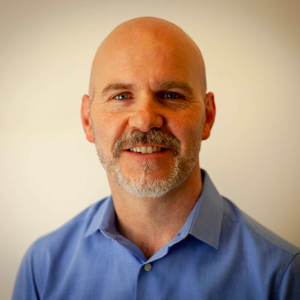A ground breaking campaign that changed the mental health landscape
31/03/2021

Today we say goodbye to Time to Change – the 15-year long anti-stigma campaign on mental health, which has transformed the way we think about mental health in England. Brian Dow, Deputy CEO of Rethink Mental Illness reflects on the amazing success of the campaign and how it started the nation talking.
The truth is that 15 years ago the levels of discrimination faced by people living with mental health problems were utterly shocking. So when the two charities that founded Time to Change – Rethink Mental Illness and Mind – got together to create a programme which was designed to challenge negative attitudes around mental health it was a leap of faith and ambition. It was this ambition we took to what would become the campaign's three funders: The Big Lottery Fund, Comic Relief and the government.
In the following period, Time to Change developed its groundbreaking social contact programme. This was built on the premise that one in four of us experience a mental health problem at any given time in an average year. It became the bedrock of a movement galvanising literally hundreds of thousands of people to share their experiences and convey a remarkably simple message. One that has become so standard and accepted that it is almost a cliché – namely that it is ok not to be ok.
That people such as myself can go into a large organisation now and state that view, or the truism that we all have mental health, and not be faced by a sea of perplexity or disagreement is only possible because of the relentless push for change. For a long period very much against the grain of public opinion.
Schools, employers and communities
The campaign also encompassed tailored programmes in schools and in the broader community as well as in the workplace. The fact that has been the inspiration for many organisations to enter the fray is a reliable sign of its success. It was the campaign which put the rocket fuel under so many local and national organisations.
"It created the confidence among the public to talk about mental health, and arguably it helped celebrities both in the UK and across the world open up about their own mental health challenges."
All of that has led to attitude change on a wide scale. When the campaign first started, it was routine for people to openly acknowledge they would not be prepared to have someone who was mentally unwell in their social circle, much less to work or even live next door to someone experiencing a serious mental health illness. Now, it seems barely a day goes by without a high-profile person speaking openly about their mental health problems.
Passing on the baton
There’s an old saw in the charity world that you should work really hard to put yourself out of business. In these most straitened of times that might sound like a fairly apocalyptic rule by which to live but it speaks to a wider point that when you start a career in the voluntary sector you are usually entering a cause which requires improving or alternatively eliminating.
"Intuitively it somehow does not feel right for Time to Change to be closing while we are in the middle of a global pandemic which is having a population level impact on the nation’s mental health like virtually nothing else has in the last 80 years."
But the work, campaigning and change will carry on without us. Many new organisations are in this terrain and some have specialism in all sorts of aspects around mental health. Local groups who are deeply embedded in their communities. Local groups who are deeply embedded in their communities. Organisations that will help take on the anti-stigma movement within ethnic minority communities, who understand at a deep level the racism and discrimination that have such a profound impact on their mental health. Something that has come into even sharper focus since the murder of George Floyd last year.
Sharing evidence and knowledge
Time to Change also has a significant body of data and evidence behind it. Both Rethink Mental Illness and Mind were clear from the start that building up robust evidence and knowledge would help continually shape how we tackle stigma and discrimination.
That deep understanding of what works is a legacy that can be shared nationally and globally. Both founding organisations are committed to sharing this openly with any individual or organisation that can use it to help target its interventions.
So although the heart is heavy, at the same time there is a reassuring sense that others will take on the baton and run with it.
"Needless to say both Rethink Mental illness and Mind remain deeply committed to the broader issue of stigma and discrimination and will keep working collaboratively and individually to tackle it wherever it rears its head. Speaking truth to power, wherever it is held."
The tide may have changed and with it all boats may have risen, but people experiencing severe mental illness such as schizophrenia still routinely have terrible outcomes and face profound discrimination and stigma daily.
Time to Change may be ending but everyone who worked on it and in particular its two Directors, Sue Baker and Jo Loughran as well as its army of supporters, should feel a huge sense of pride. We said it was Time to Change, and as it turns out, it was.
